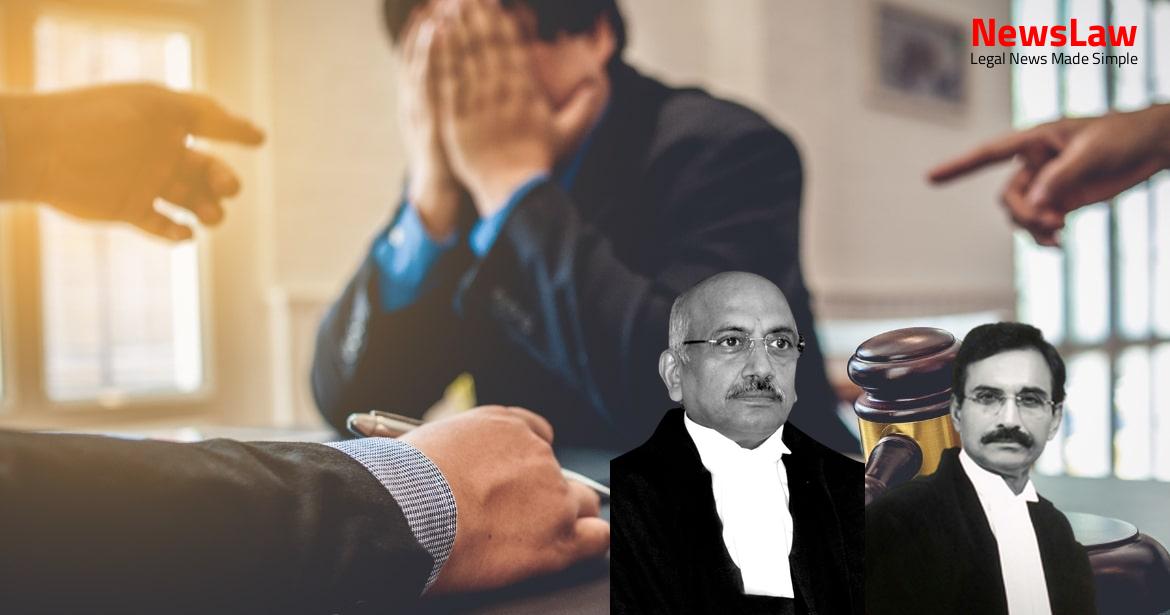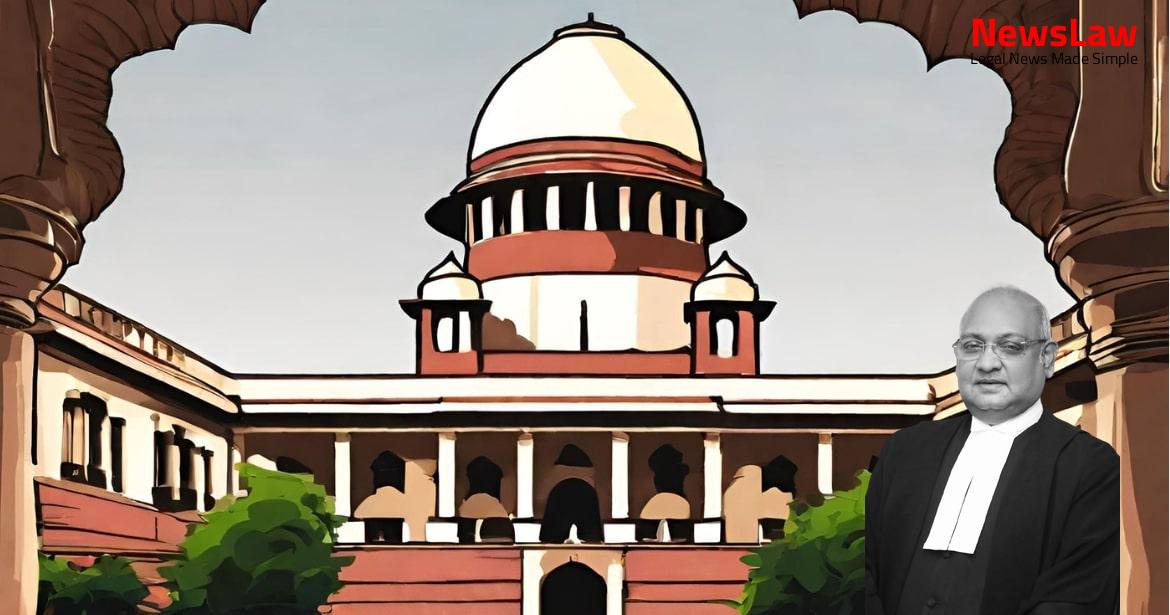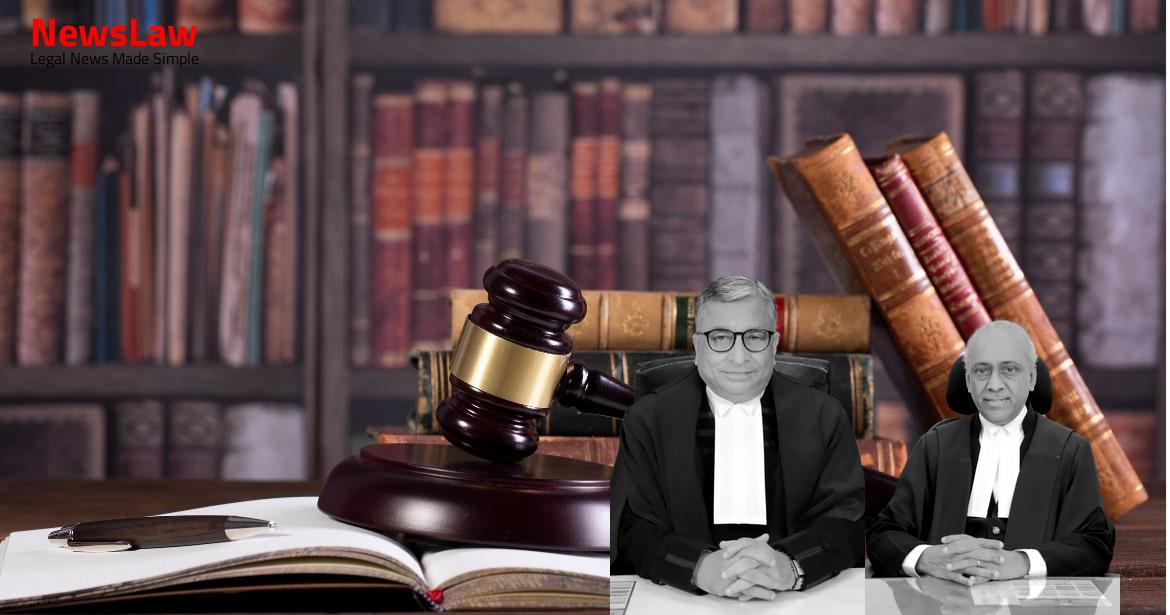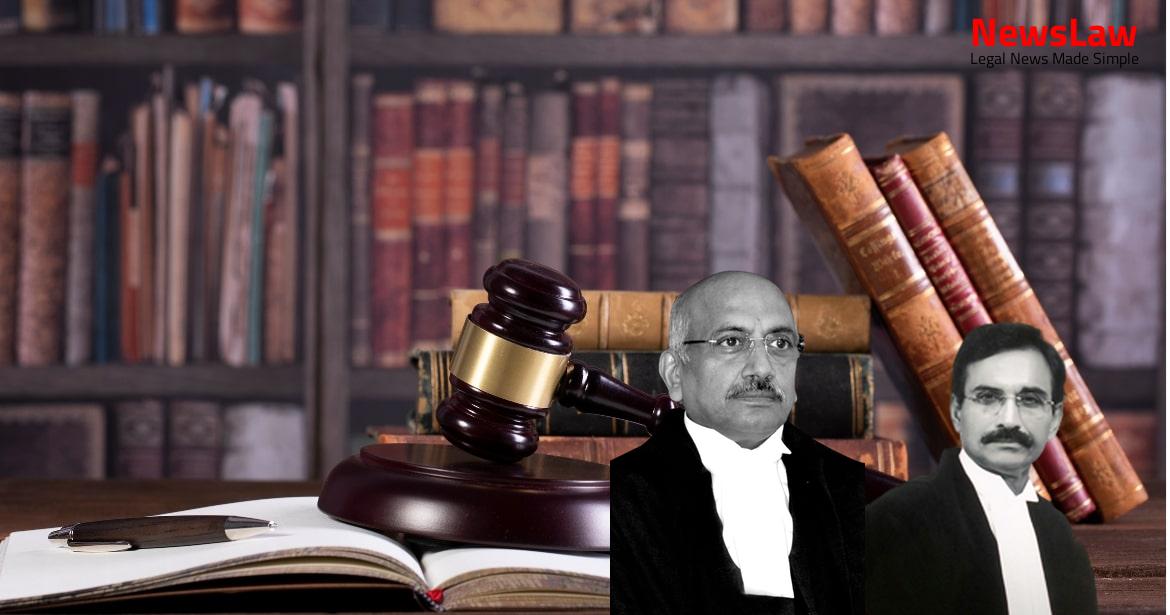Unravel the intricate legal saga surrounding the legacy of Chhotabhai Ashabhai Patel in the recent Supreme Court ruling. The case delves into the contentious issue of property inheritance and the validity of a disputed gift deed. Discover the complex legal arguments and implications surrounding ancestral property rights in this compelling judicial decision.
Facts
- High Court of Gujarat passed an order on September 5, 2018, regarding a second appeal.
- The appellants are the sons of Chhotabhai Ashabhai Patel who passed away on December 6, 2001.
- Chhotabhai Ashabhai Patel purportedly executed a gift deed on November 15, 1977, in favor of defendant Ramanbhai Mathurbhai Patel.
- The appellants are challenging the order passed by the High Court of Gujarat related to the gift deed.
Also Read: Lt. Col. Om Dutt Sharma vs. Ministry of Defence: OROP Entitlement for Army Postal Service Personnel
Issue
- The key issue to be determined is whether the appellants have proven that the property in the possession of Donor was ancestral property.
- The parties went to trial on several issues including the validity of the disputed gift deed, the entitlement of the plaintiffs to the relief prayed for, and the right of the defendant to contest the suit.
- The plaintiffs also aimed to establish that the properties in question are ancestral and that the late Chhotabhai Ashabhai had no authority to execute the gift deed.
- Additionally, the plaintiffs sought to prove that the defendant does not hold any right, title, or interest in the said property.
- The final outcome of this examination will determine the order and decree to be passed in this case.
Also Read: Inheritance Dispute: Validity of Alleged Marriage between Sujathamma and Hanumanthappa
Arguments
- Interference in the second appeal is argued to be contrary to the judgment in Thulasidhara & Anr. v. Narayanappa & Ors.
- Appellants have produced old revenue records and documents (Exhibits 107 to 126) to prove the property is ancestral.
- The Trial Court and First Appellate Court have both found the property to be ancestral based on the evidence provided.
- The argument raised by learned counsel for the appellants that the High Court has exceeded its jurisdiction by reversing the findings of fact recorded by the First Appellate Court is deemed invalid.
- The reasoning of the First Appellate Court has been deemed illegal, thereby justifying the High Court’s reversal of the findings.
- The High Court’s findings, contrary to the notion that property devolved on the Donor through a Will and ceased to be ancestral, were deemed inconsistent with established legal precedent.
- Reliance was placed on judgments stating that self-acquired property of a grandfather can devolve upon his son as ancestral property, supporting the view that the property in question should be considered ancestral.
- The plaintiffs failed to prove the property’s ancestral nature after it was established that their grandfather had purchased it and bequeathed it to their father exclusively, thus making it appear as self-acquired property.
Also Read: Seniority Determination in Uttarakhand Pey Jal Nigam: Regulation 23 vs Government Order
Analysis
- The Court found that the property gifted by a father to his son does not automatically become ancestral property in the hands of the donee.
- Different High Courts have answered questions regarding the ancestral property issue in varying ways.
- The attesting witnesses of the gift deed were not examined, and the appellants did not deny the execution of the gift deed specifically.
- The property was partitioned in 1964, leading to the Donor acquiring it as self-acquired and not ancestral property.
- The Donor had the right to deal with his self-acquired property as he deemed fit, including gifting it to a stranger to the family.
- The burden of proof that the property was ancestral rested on the plaintiffs.
- The appellants admitted the execution of the gift deed but alleged it to be forged; however, no proof of forgery was established.
- The High Court held that the appellants did not lead evidence supporting their claim of forgery on the gift deed.
- The property in question was purchased by the Donor’s grandfather and passed down through testamentary succession.
- The High Court ruled that the suit property is not ancestral and there was no specific denial of the execution of the gift deed in the suit filed.
- In the abovesaid case, the plaintiff claimed natural succession while the defendant relied upon the gift deed.
- There was a specific denial of the execution of the gift deed in the present case.
- The appellants alleged forgery and fabrication of the gift deed, different from the proof of document attested.
- Order VI Rule 4 of the Code of Civil Procedure, 1908 necessitates stating necessary particulars in pleadings for allegations like misrepresentation, fraud, breach of trust, wilful default, or undue influence.
- The Court discussed the distinction between natural succession and gifts given by fathers in the context of ancestral or self-acquired property.
- The Court emphasized that specific denial of execution of the gift deed indicates the donor did not sign the document.
- The Court referred to a case with similar facts in the Kerala High Court regarding forgery and fabrication allegations.
- The Court highlighted that in absence of evidence of forgery or fabrication and specific denial of gift deed, the Donee was not obligated to examine attesting witnesses.
- The Court discussed a case where a daughter filed a suit based on natural succession, dealing with proper attestation and consideration of a mortgage deed by defendant No 1.
- The Court interpreted the proviso to Section 68 of the Evidence Act regarding the term ‘specific.’
- The Court discussed a case in the Kerala High Court involving the claims of daughters of a donee.
- The Court mentioned the Bombay High Court’s stance on property inheritance by sons through devise as self-acquired.
- The Court emphasized the importance of interpreting the Will’s intention regarding property inheritance by legatees as self-acquired without ancestral ties.
- The rulings of the Bombay, Allahabad, and Lahore High Courts were cited and approved by this Court in the context of fathers’ gifts being exempt from partition.
- A gift deed must be compulsorily attested as per Section 123 of the Transfer of Property Act, 1882.
- Attestation of a gift deed is a mandatory requirement.
- Non-compliance with the attestation requirement may render the gift deed invalid.
- The appellants, who failed to take care of their parents, had their father execute a gift deed in favor of another individual who supported him.
- The High Court’s findings regarding the appellants’ negligence towards their parents were found to be correct with no errors.
- The judgment of the High Court was deemed to be without error due to the above reasons.
Decision
- The RPC (Original Name) may warrant interference in the present appeal
- The appeal is dismissed
Case Title: GOVINDBHAI CHHOTABHAI PATEL Vs. PATEL RAMANBHAI MATHURBHAI
Case Number: C.A. No.-007528-007528 / 2019



